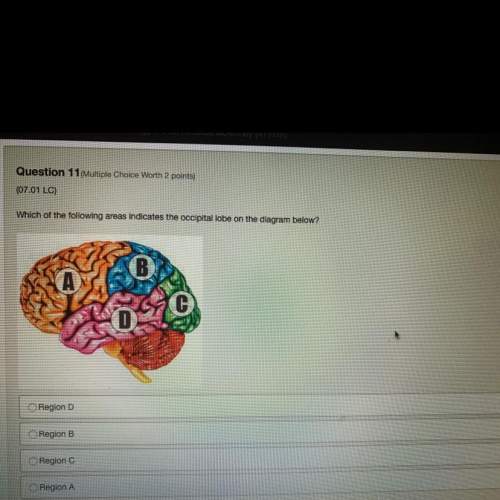
Biology, 01.02.2021 16:20 averylivinglife2041
(Q001) In this lab, we considered various human adaptations. It important to remember that many of these adaptations evolved to suit environmental circumstances of the past, and that they may be less helpful even maladaptive) in today's world. For example, humans are adapted to store fat in the body for later use. This is very helpful during times when food is limited ( such as during extended droughts) because allows us to live on the fat stores of our bodies. However, in much of the world today, there is food abundance rather than food scarcity. In the face of food abundance in many populations today, our ability to store fat becomes maladaptive and contributes to obesity and related health problems ( type 2 diabetes, heart disease,

Answers: 2


Another question on Biology

Biology, 21.06.2019 15:30
On a floor there are several 1-4 mm elongated drops leading away from a body lying in a pool of blood. the the forward wall there is a sigzag pattern and on the walls to the right side there is a linear patter
Answers: 1

Biology, 22.06.2019 02:30
Sally and sue were investigating the topic of friction in science. they used a small car and a ramp as seen in the picture to test what they were learning. they knew that they slipped easily on waxed floors but not on carpet, so they decided to change the material on the surface of the ramp to see what happened. they planned to use glass, carpet, aluminum foil, and sandpaper and run the car down the ramp over each surface. what would be the best research question to guide the girls' experiment? a) does the amount of surface area affect the friction on the moving car? b) will the car travel fastest on the glass surface? c) how does the angle of the ramp affect the speed of the car? d)do rougher surfaces tend to create more friction than smooth surfaces?
Answers: 1

Biology, 22.06.2019 08:00
The graph shows the amount of global warming happening in different ecosystems. which populations of organisms will likely decline the most as a result of climate change, and why? a.coral reefs because of the loss of the symbiotic algae living within their bodies b.penguin populations because the fish they eat will move into warmer waters c.mountain-dwelling birds because rising sea levels will relocate their food sources d.large cats in the rainforest because of decreased habitat loss for their prey
Answers: 2

Biology, 22.06.2019 13:00
Astudent completed a lab report. which correctly describes the difference between the "question" and "hypothesis' sections of her report? "question states what she is asking, and "hypothesis" states the result of her experiment "question" states what she is asking, and "hypothesis" states what she thinks the answer to that question is in 'if. then because" format. "question" describes what she is trying to find out, and "hypothesis" states the procedures and methods of data collection. "question" describes what she is trying to find out, and "hypothesis" states any additional information or prior knowledge about the question
Answers: 1
You know the right answer?
(Q001) In this lab, we considered various human adaptations. It important to remember that many of t...
Questions


Mathematics, 04.12.2021 01:00



History, 04.12.2021 01:00

Mathematics, 04.12.2021 01:00

Social Studies, 04.12.2021 01:00

Mathematics, 04.12.2021 01:00


Mathematics, 04.12.2021 01:00



Mathematics, 04.12.2021 01:00

English, 04.12.2021 01:00

English, 04.12.2021 01:00


Biology, 04.12.2021 01:00

Mathematics, 04.12.2021 01:00

Mathematics, 04.12.2021 01:00




